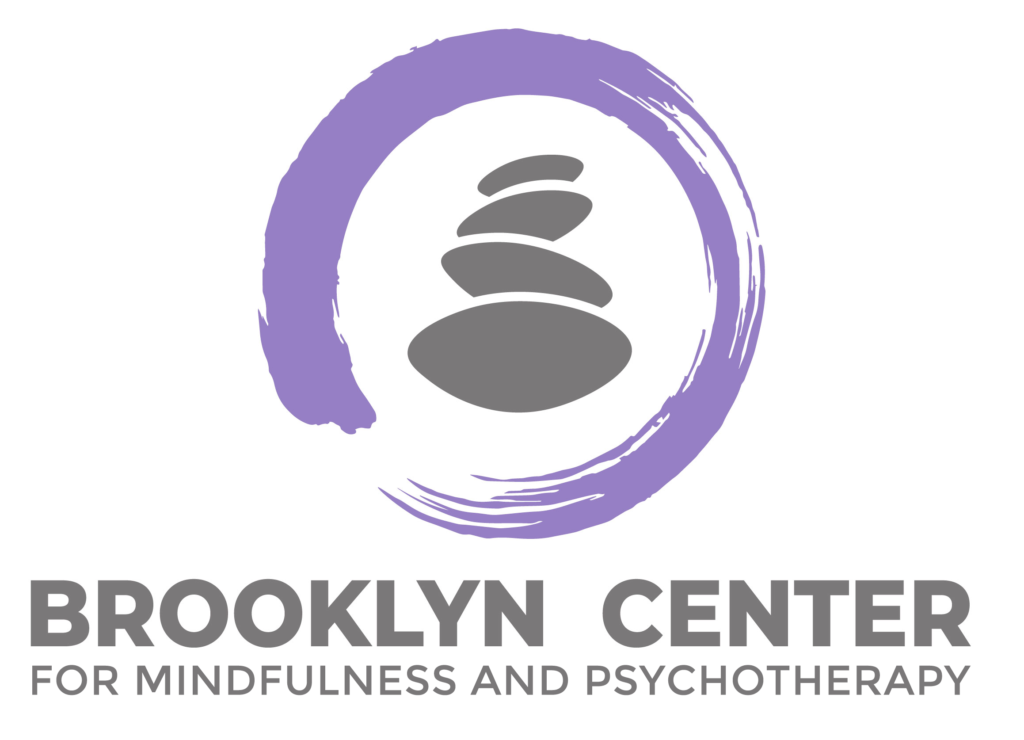Perinatal Mental Health New York
- Home
- Perinatal Mental Health New York
2 Top-Rated Perinatal Therapists In Brooklyn
1. Liza Mordkovich, LCSW

- Education: Masters degrees in art therapy and counseling, masters in social work with a concentration on mental health
- Services: Individual psychotherapy, biopsychosocial assessments, coaching
- Specializations: Perinatal mental health, anxiety, sleep issues, obsessive compulsive disorder, phobias, panic disorder, personality disorders, couples therapy, depression, trauma/grief and ptsd, ADHD
- Therapeutic Orientation: Cognitive behavioral therapy, acceptance and commitment therapy, dialectical behavioral therapy, exposure and response prevention for OCD, prolonged exposure, cognitive processing therapy
- Years in Practice: 20 years in practice and 12 years in private practice.
- Learn more about Liza Here
2. Gabrielle Jakob, LMHC

- Education: Masters in mental health counseling
- Services: Psychotherapy for individuals, couples and families and coaching.
- Specializations: Couples therapy, anxiety disorders, perinatal mental health, depression, trauma, ADHD.
- Therapeutic Orientation: Cognitive behavioral therapy, Gottman level 3, solution focused psychotherapy.
- Years in Practice: 15 years in practice
- Learn more about Gabrielle Here
Perinatal Mental Health New York for postpartum depression
You are not alone
Pregnancy and post-birth are such exciting, life-changing, and exhausting times for the whole family! Preparing the mind, body, and spirit for a new life can be exciting, daunting, anxiety-provoking, and traumatic. Supporting mothers/persons, individuals, and families is critical during these changes.
When you begin to plan for a baby, you plan your medical provider, where you want to give birth, breast/chest feeding or formula, birth plan- mental health support is just as critical to include in your journey!
Approximately 1 in every 7 women will get a perinatal mood or anxiety disorder like postpartum depression or anxiety. Even if birth goes smoothly, the adjustment period can be difficult on yourself, your body, your relationship and other children in the family. We are here to support all of you!

As adult women and persons navigating the complexities of pregnancy, prenatal, and postpartum phases, it is crucial to seek treatment for prenatal support.
Our team of clinical social work therapist (LCSW), licensed clinical psychologist and mental health professionals at our Postpartum Stress Center, we have specialized training in perinatal mental health. We treat postpartum depression, baby blues, perinatal OCD, postpartum psychosis, IVF, and perinatal loss. Perinatal period includes prenatal, pregnancy, and postpartum. We also provide couples therapy and family therapy. As part of our treatment plan, we can help you manage symptoms and provide necessary emotional support.
Many women who experience postpartum depression may also have a history of chronic depression or face maladaptive behaviors such as substance abuse. Effective depression screening is crucial to identify those at risk and provide appropriate treatment. Factors like physical health, individual history, pregnancy loss, and a family history of mental health issues can contribute to the onset of postpartum depression. Managing symptoms through therapy, medication, and support can significantly improve outcomes. Ensuring disease control and overall well-being helps new mothers and persons navigate this challenging period and promotes long-term recovery.
Our team, your counselor, a licensed clinical social worker or other trained mental health professional, specializing in supporting women through pregnancy prenatal postpartum period.
Let's Connect!
Postpartum therapy services we offer with a clinical social work therapist
Our therapists are dedicated to helping you address pregnancy, prenatal, and postpartum concerns with comprehensive, compassionate care.
Don’t forget to ask about our support group and walking therapy!

Perinatal loss is an insurmountable grief requiring delicate care and treatment specific for perinatal period. Regular grief and trauma treatment will fail if not taking under consideration the valuable perinatal space and time period. We provide grief treatment for all birth persons and family.
We also support you in difficult decisions within your pregnancy including whether to continue with pregnancy.
Perinatal anxiety and Perinatal OCD consists of intrusive and scary thoughts following an overwhelming anxiety. We can help you overcome the scary thoughts and come to a sense of peace.
We support all birth persons regardless of gender identity and sexuality. Your needs are seen.
We are here to support during these transitions and adjustments!
In our work, you will learn valuable mindfulness, distress tolerance, and meditation tools which can assist during pre-pregnancy, pregnancy, child birth and beyond.
Perinatal Depression Day Program Groups: Finding Support and Healing
If you are a new or expectant mother struggling with perinatal depression in New York? You’re not alone. At our behavioral health center, we understand the unique mental health challenges that women face during this time.
That’s why we offer a comprehensive Perinatal Depression Day Program Group to support and guide you on your journey to healing. Our program is led by a team of professional and compassionate health care providers, including licensed clinical therapists and psychologists. We are dedicated to providing the best possible care to our patients and offer a safe and supportive environment where you can work through your challenges.
Our program offers a fullsize view of health matters and addresses perinatal depression with the latest clinical trials and evidence-based practices. Our program is designed to meet your individual needs, whether you prefer individual therapy, group therapy, or couples therapy. Our therapists are experts in treating postpartum depression and can help you navigate the challenges of life transitions.

They are fully licensed and authorized to practice in New York, ensuring you receive the highest quality of care. At our medical center, we believe that every woman deserves personalized care. That’s why we offer a variety of therapy options to help you overcome any obstacles that may
Supporting a Partner or Loved One with Perinatal Mental Illness
Supporting a Partner or Loved One with Perinatal Mental Illness can be a challenging task. Maternal mental health is a critical aspect of overall well-being and should not be overlooked during the perinatal period. If you or a loved one is struggling with perinatal mental illness, it is important to seek help from a medical group or professional who specializes in this area. Urgent care may be necessary in severe cases, and a postpartum center can provide ongoing support and resources. It is important to remember that seeking help is a strength, not a weakness, and that recovery is possible with the right support. By working closely with healthcare professionals and advocating for their loved one’s care, partners and family members can play a crucial role in the journey towards recovery.
Facts about perinatal mood and anxiety disorders (PMAD):
- Perinatal mood and anxiety disorders is an umbrella term used to describe mood disorders during pregnancy or postpartum period.
- 15- 20% of women experience some degree of PMAD.
- Symptoms can include anxiety, depression/sadness, feeling numb, anger/rage, lack of interest in things once found enjoyable, changes in eating or sleeping, feelings of guilt, feelings of hopelessness, trouble concentrating, panic attacks, intrusive “scary” thoughts, worry, fears of going crazy, fears for babies health, or thoughts of hurting self or baby.
- PMAD affects women of every culture, age, income level and race.
- Symptoms can develop any time before and after 12 months for up to 3 years postpartum.
- Symptoms often will not improve on their own or with time: therapeutic intervention are key to feeling better.
- Symptoms of depression and anxiety can hinder attachment, affect relationships with partner and others, and greatly decreases sense of wellbeing
Therapy WORKS! You are not alone. Therapy can help.
If you don’t feel like yourself during pregnancy and postpartum period, therapy can help!
Services include:
- Treatment and assessment for PMAD, stress and birth trauma.
- “We acquire the strength we have overcome.” – Ralph Waldo Emerson”
- CBT and mindfulness skills for pain management.
- Breastfeeding/chest feeding resources and referrals.
- Behavioral interventions and support for sleep solutions.
- Family and couples counseling. Helping families adjust to life with a new baby and beyond.
- Parenting coaching with a nod towards respectful, gentle, and mindful strategies and interventions.
- Cesarean support.
- Abortion support.
- Fertility and trying to conceive Support.
- Mindfulness and hypnotherapy during pregnancy.
- We can work together to help cultivate infant-parent attachment, maximize sleep, and adjust to fourth trimester.
Please contact us directly to inquire about services. (To contact us page)
Let's Connect!
Why choose the Brooklyn Center for Mindfulness and Psychotherapy to treat postpartum depression
Choosing the right mental health provider is crucial for effective treatment and overall well-being. At the Brooklyn Center for Mindfulness and Psychotherapy, we are committed to offering exceptional care that meets the unique needs of each individual. Our comprehensive approach, experienced clinicians, and dedication to holistic wellness set us apart from other providers. Here’s why you should consider working with us:
At the Brooklyn Center for Mindfulness and Psychotherapy, we are committed to providing exceptional care that empowers you to lead a healthier, more fulfilling life. Contact us today to start your journey towards wellness.
FAQs about postpartum counseling in Brooklyn
Common postpartum and pregnancy issues often arise due to the rapid drop in hormones after giving birth and can be influenced by factors such as social support, individual mental health, and family history. Here are some common perinatal mental disorders and their symptoms:
Postpartum Depression (PPD)
Symptoms: Persistent sadness, loss of interest in activities, fatigue, changes in sleep and appetite, feelings of guilt or worthlessness, difficulty bonding with the new baby.
Higher risk: Those with a history of depression or inadequate social support.
Treatment: Cognitive Behavioral Therapy (CBT) and medications for postpartum depression.
Postpartum Anxiety
Symptoms: Excessive worrying, restlessness, physical symptoms like heart palpitations, trouble sleeping, and constant fears about the baby’s health.
Higher risk: Those with a history of anxiety disorders or significant stress.
Treatment: CBT, relaxation techniques, and self-care practices.
Postpartum Psychosis
Symptoms: Severe confusion, hallucinations, delusions, paranoia, and rapid mood swings.
Higher risk: Those with a personal or family history of bipolar disorder or psychosis.
Treatment: Immediate medical intervention and psychiatric care.
Postpartum Obsessive-Compulsive Disorder (OCD)
Symptoms: Intrusive, distressing thoughts (obsessions) and repetitive behaviors (compulsions) to manage worries.
Higher risk: Those with a history of OCD or other anxiety disorders.
Treatment: CBT and exposure therapy and, in some cases, medications.
Postpartum Post-Traumatic Stress Disorder (PTSD)
Symptoms: Flashbacks, nightmares, severe anxiety, and avoidance behaviors following a traumatic birth experience.
Higher risk: Those who experienced a traumatic or complicated birth.
Treatment: Therapy to address prenatal or postpartum concerns and trauma-focused interventions.
Seeking treatment for prenatal or postpartum concerns early can help manage symptoms and improve outcomes for both the mother and baby.
For treating maternal mental health issues, various therapeutic modalities have proven effective. At the Brooklyn Center for Mindfulness and Psychotherapy, we employ several evidence-based approaches to support new moms and families.
Cognitive Behavioral Therapy (CBT): This method helps identify and change negative thought patterns and behaviors, making it highly effective for postpartum depression and anxiety. CBT can assist new moms in managing their symptoms and working towards returning to their pre-pregnancy levels of functioning.
Dialectical Behavioral Therapy (DBT): DBT combines cognitive-behavioral techniques with mindfulness strategies to help manage intense emotions and improve interpersonal skills, which is beneficial during pregnancy, prenatal, and postpartum periods.
Mindfulness-Based Stress Reduction (MBSR): This approach incorporates mindfulness practices to reduce stress and increase self-awareness, promoting emotional balance during the postpartum period.
Art Therapy: Using creative expression as a therapeutic tool, art therapy helps individuals process emotions and experiences related to childbirth and motherhood.
These therapies, often combined with individualized treatment plans, medications for postpartum depression, and supportive care, provide comprehensive support to address the unique challenges of the postpartum period. Our experienced clinicians tailor these approaches to meet each client’s specific needs, ensuring effective and compassionate care for those at increased risk of postpartum mental health issues.
If you are seeking postpartum therapy, there are several resources available to help you find a maternal mental health expert in your area. Websites such as Postpartum Support International (PSI) and the American Psychological Association (APA) offer directories of mental health professionals who specialize in prenatal and postpartum concerns. Additionally, local hospitals and community health centers often have referrals to therapists who treat depression, anxiety, and relationship issues during the perinatal period.
Remember, the Brooklyn Center for Mindfulness and Psychotherapy offers virtual therapy services, allowing us to support individuals throughout the state of New York. Our licensed clinical social workers and other mental health professionals have extensive clinical experience in treating postpartum depression and anxiety using cognitive behavioral therapy (CBT) and other evidence-based approaches. We can help manage worries during pregnancy, address prenatal concerns, and provide support for symptoms similar to baby blues and untreated postpartum depression.
A medical professional can assess specific medications for postpartum. We also offer referral for medications for postpartum depression and support groups for other mothers. Don’t hesitate to seek treatment to ensure both you and your baby thrive. Get the support you need and your postpartum depression treated to navigate new parenthood.
At the Brooklyn Center for Mindfulness and Psychotherapy, we believe in providing compassionate and comprehensive care to help you navigate the challenges of the perinatal period. Our licensed clinical social workers and mental health professionals use evidence-based approaches like cognitive behavioral therapy and talk therapy to address prenatal and postpartum concerns. Whether you’re experiencing hormonal changes, following symptoms of postpartum depression, or relationship issues, we are here to support you. If you’re an adult woman seeking treatment, we invite you to reach out for a free consultation to discuss how we can help you manage your mental health and well-being.
If you are in immediate distress, please contact the crisis lifeline for support.


